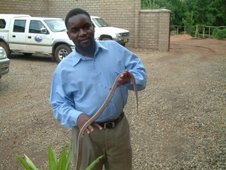
Nkhoma Synod makes a good decision
By Hastings Maloya
Recently there have been debates going on as to whether Malawi is a God-fearing nation or not. While others think, indeed we are a God-fearing nation; other schools of thought are to the contrary. Examples are bound of some deeds that have taken place in the country in recent times that would make one doubt if indeed we are a God-fearing nation. Nevertheless, whether we are or not, it would depend on which side of the debate one chooses to be, but it could be agreeable by all that Malawi is a religious nation.
Despite different beliefs and thoughts, almost all Malawians belong to a certain religious sect. Arguably, most of them are Christians. And Malawi being a religious nation, we have always regarded our religious institutions and religious leaders with respect. We assign to these, the roles of counselor, leader and nation builder.
However, what we have witnesses in the past five years between the Nkhoma and Livingstonia Synods of the CCAP Church have consistently refused to fit into the above roles. News related to the issue about boundaries between the two Synods brought us, observers not any closer to the teachings of Christianity but rather seeds of disunity and division among Christ’s faithful.
The Synods had, to a certain degree chosen, as their calling the defending of privileges of a small constituency other than the unification of these interests with those of the nation as a whole. Through their disagreements on regional boundaries, Malawians have noted use of language that is confrontational, alarmist and divisive turning Christianity into a festering war.
Since necessary information has not been forthcoming as to why the boundary should be an issue between religious groupings, yet of the same CCAP, Malawians have just been left wondering and making assumptions. It has only been leaders at the helm of the two Synods that know the actual reasons for the disagreements and the values associated with them. But lay people like me would wonder why sharing of the word of God should really have boundaries.
If it is due to historic background, then that history should be out of tune. We need to move with time and accept that things do change with time. Actually it could be a sign of laziness to base our arguments on facts that were thought over a decade ago.
This is why I would say finally, common sense has prevailed in the battle of 'areas of influence' between Nkhoma and Livingstonia Synods. A stand taken by the Nkhoma Synod that there need not be any boundaries, though coming in late, is the best and should be applauded.
According to recent media reports, the Nkhoma Synod has given up on the protracted border dispute with the Livingstonia Synod and has adopted a ‘no border’ policy a move that has also been welcomed by the Livingstonia Synod. It is so pleasing to hear that the Synod has made the decision to close the chapter on the boundary matter.
Most Christians believe that human beings experience divine judgment and are rewarded either with eternal life or eternal damnation. Studies indicate that in most countries in the developed world, church attendance among people who continue to identify themselves as Christians has been falling over the last few decades. Some sources view this simply as part of a drift away from traditional membership institutions, while others link it to signs of a decline in belief in the importance of religion in general.
In this regard, the Nkhoma Synod has finally risen to the occasion and is not ready to weaken Christianity and its membership. Surely level-minded people would love to be members of Nkhoma Synod and freely praise the Lord without thinking of a boundary, which in the first place was not even made by spiritual guidance.
And apart from sharing the word of God, the Synod also offer social services.
According to available records, the CCAP Nkhoma Synod was founded in or around 1889 and is one of the major Protestant churches in Malawi. It has over a hundred congregations and over a thousand prayer houses with close to a million members. It also maintains a Theological Training centre, runs a health department and is also responding to the growing HIV/AIDS epidemic. Do we really need a boundary for these services?
In short, over the past years deserving people have been denied services that could have uplifted their livelihoods because of the nonsense that was called Synod boundaries. Though late, the decision by the Nkhoma Synod will, in the next few year benefit Malawi as a whole as resources and services shall be shared to the people regardless of jurisdiction of their stay.
Protestant Christians believe that the Bible is a self-sufficient revelation, the final authority on all Christian doctrine, and revealed all truth necessary for salvation. And most of the entire Bible preaches love and forgiveness. It is unfortunate that in the modern era, Christianity has been confronted with various forms of skepticism and with certain modern political ideologies such as liberalism and recent events have ranged from mere anti-clericalism to violent outbursts.
Surely the decision by the Nkhoma Synod will ensure that peace and co-existence prevail. Our expectations should be that both the Livingstonia and Blantyre Synods also go for a no-boundary policy. Moreover, why should we have a Church of Central Africa that recognises regions and promotes divisions?
We should all acknowledge the fact that the decision by the Nkhoma Synod comes after a long protracted war between the two synods during which the CCAP general Synod tried to mediate using a commission of enquiry to no avail. The decision therefore, cannot be contested as it is not infringing on anyone but giving an opportunity of free choice to people to chose which they think is the best. In this regard it would not be expected that anyone would want to go in any argument or discussions over this decision. The Nkhoma Synod has demonstrated that it is for peace and development.
From this we can learn that there is no argument or disagreement that cannot be resolved. It does not necessarily need to take use of vulgar language or force to see things move in a positive direction. Giving in and accepting change to take natural course is the best way Malawians would lie in co-existence.
Salutations to the Nkhoma Synod for a well thought of decision. It’s a lesson worth learning!








No comments:
Post a Comment